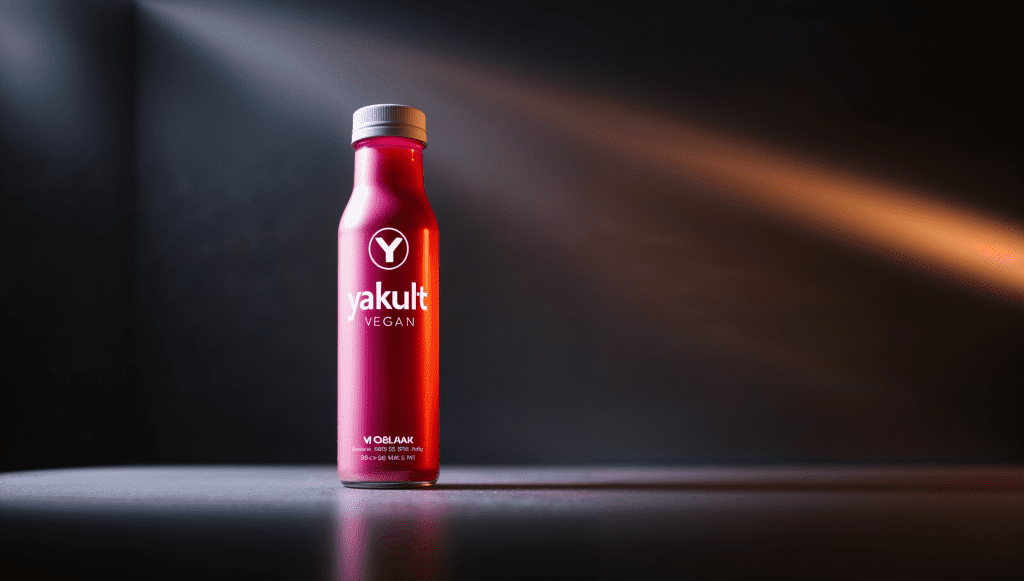Ingredients
- 1 (14-ounce) can of full-fat coconut milk (organic is preferable)
- 2 capsules of vegan-friendly probiotics (ensure they do not contain prebiotics)
Instructions
Prepare the Coconut Milk:
- Shake the can of coconut milk well before opening to ensure it’s mixed thoroughly.
Mix with Probiotics:
- Pour the coconut milk into a clean glass jar or bowl.
- Open the probiotic capsules and add the contents to the coconut milk. Stir gently with a wooden or plastic spoon to combine, avoiding metal utensils as they can react negatively with probiotics.
Cover and Ferment:
- Cover the jar with cheesecloth or a thin dish towel, securing it with a rubber band to allow airflow while keeping contaminants out.
- Place the jar in a warm area (around 75-85°F or 24-29°C) and let it sit for 24 to 48 hours. The longer it ferments, the thicker and tangier it will become.
Refrigerate:
- After fermentation, stir the mixture again and transfer it to the refrigerator. It can be stored for up to a week.
Serve:
- Enjoy your homemade vegan Yakult-style drink chilled, or use it as a base for smoothies or other recipes.
This recipe provides a creamy, tangy probiotic drink similar to Yakult, suitable for those following a vegan diet[1][3].
Can I Use a Yogurt Maker for Fermenting Vegan Yakult?
Yes, you can use a yogurt maker to ferment vegan Yakult. A yogurt maker provides a controlled environment with consistent temperature, which is ideal for fermentation. Simply follow the same steps as you would for traditional yogurt-making, but substitute dairy with your chosen non-dairy milk (like coconut milk) and add vegan probiotics. Set the yogurt maker to maintain a temperature of around 37°C (98.6°F) for optimal fermentation, typically for 24 to 48 hours, depending on the desired tanginess and thickness.
How Can I Make Vegan Yakult Without a Thermomix?
To make vegan Yakult without a Thermomix, you can use the following method:
- Ingredients: Use one can of full-fat coconut milk and two capsules of vegan probiotics.
- Mixing: Pour the coconut milk into a clean glass jar and add the probiotic powder from the capsules. Stir gently to combine.
- Temperature Control: Place the jar in a warm area (around 75-85°F or 24-29°C) to allow fermentation.
- Fermentation Time: Let it sit for 24 to 48 hours, checking for the desired consistency and tang.
- Refrigeration: Once fermented, stir again and refrigerate for up to a week.
This method allows you to create a probiotic drink similar to Yakult without needing specialized equipment.

Tips for Achieving the Right Consistency in Vegan Yakult
To achieve the desired consistency in your vegan Yakult, consider these tips:
- Use Full-Fat Coconut Milk: This will provide a creamier texture compared to lighter alternatives.
- Fermentation Time: Experiment with fermentation times; longer fermentation can lead to thicker consistency.
- Temperature Stability: Maintain a stable fermentation temperature around 37°C (98.6°F) to encourage proper bacterial growth.
- Stirring: Gently stir the mixture before refrigerating to ensure even distribution of probiotics.
Adjusting these factors will help you find the right balance between thickness and drinkability.
Can I Use Coconut Milk to Make Vegan Yakult?
Yes, coconut milk is an excellent base for making vegan Yakult. Its creamy texture and natural sweetness complement the tangy flavor produced during fermentation. Additionally, coconut milk is dairy-free, making it suitable for vegans and those with lactose intolerance. When using coconut milk, ensure you select full-fat varieties for optimal consistency and flavor.












